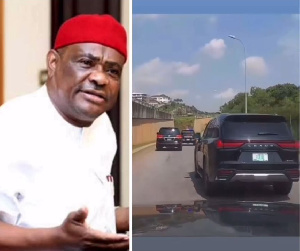‘Tinubu’s emergence’ll boost investor confidence’

Chief Executive Officer, Center for the Promotion of Private Enterprise (CPPE), Muda Yusuf, said the presidency of Tinubu would have a positive impact on the economy and boost investors’ confidence in the economy.
Yusuf told The Nation yesterday in Lagos, that Tinubu’s emergence should be applauded because of its import for the economy. His confidence is buoyed by the fact that the President-elect represents the first time someone from the private would be running the affairs of the country.
“I think Tinubu’s Presidency will have a positive impact on the economy and boost investors’ confidence because this is perhaps the first time as a country that we are having someone from the private sector that will rule the country,’’ he said.
He further saidTinubu has good exposure to know what investors actually need to thrive in an economy, adding that his capacity to assemble a good team that will drive quality economic policy formulations and implementation is very critical for an economy to thrive.
“I also believe that Tinubu is reforms-oriented, especially in terms of critical reforms that need to take place in our monetary policy space, oil and gas space and fiscal policy space, he added.
Also, Nigeria’s first Professor of Capital Market and lecturer at Nasarawa State University, Professor Uche Uwaleke, said the removal of fuel subsidy should be Tinubu’s priority.
“In the area of fiscal policy, I expect the new government to move swiftly to deal with the issue of fuel subsidy. This should result in a lot of savings and improve the country’s fiscal position in view of the huge debt burden.
“On the monetary front, there’s a need to inject more transparency in the forex market through the elimination of multiple exchange rates. This should have the effect of boosting investors’ confidence in the economy and attracting foreign investments required to create jobs”.
Still, an expert in finance and wealth management, Mr. Gabriel Idakolo, said President-elect Tinubu “should first look at the CBN’s policies in taming inflation to make some fundamental changes in Naira redesign policy, exchange rate policy that allows market forces determine the rate”.
“The President-elect should set up a committee to look at the removal of fuel subsidy with palliative measures put in place to ameliorate the suffering of the people.
“There should be an stakeholders’meeting in the energy sector immediately to look at the issues affecting adequate delivery of energy to the industrial sector as well as high electricity tariffs imposed on Nigerians.
“The President-elect should organise a thinktank session on how to address the mass exodus of professionals.”
A former executive Director, Keystone Bank Limited, Richard Obire, noted that Tinubu has to remove petrol subsidy as he promised during his campaigns and channel the savings to health and education.
“We know that subsidy has been a big challenge for the economy. If the subsidy goes, revenue will go up, and what is earned should be channelled to health and education,” he said, adding that the government could borrow to fund infrastructure, especially power, and ensure that the funding for power goes to projects that can repay the loans.
He said: “Borrowing should be tied to projects that can repay the loans. That way, such loans will be easy to be repaid.”
According to him, there is also the need for the government to invest in infrastructure that makes it easy for farmers to move their farm produce to towns.
Reuters, in a report, quoted Anders Faergemann,an Emerging Markets Fixed Income Portfolio Manager at PineBridge Investments as saying: “We view the economic outlook for Nigeria as glass half full, subject to the authorities allowing the Naira to devalue and removing the oil subsidies”.
He said Tinubu has been making promises during his campaign on these issues.
“He is a political godfather and kingmaker. He does know the political machinery and, hopefully, that will allow him to push through quite difficult reforms.
“Some analysts said Tinubu’s reliance on political patronage may make some reforms less likely, citing the benefit that many politicians are said to get from the petrol subsidy, which the president-elect has pledged to phase out.
“Tinubu will hike taxes, that’s something he knows how to do. So, he will try to offset (the fuel subsidy),” said Tunde Ajileye, a partner at Nigerian firm, SBM Intelligence.
Tinubu has pledged to boost oil production, languishing around 1.39 million barrels per day (bpd) and well below its 1.8 million bpd OPEC quota, to 2.6 million bpd by 2027.
“I think he’s going to deal with oil theft and raise oil production,’’ Ajileye added.
Source: thenationonlineng.net





